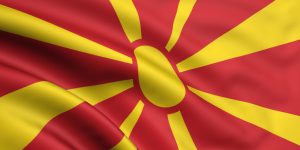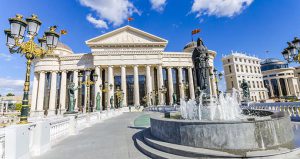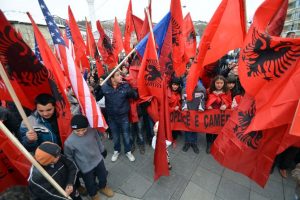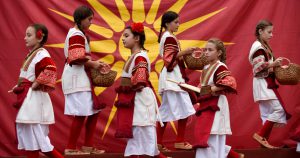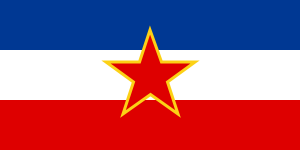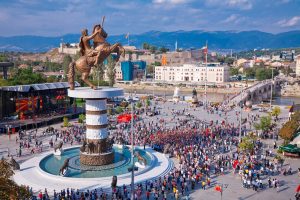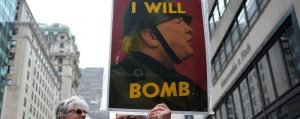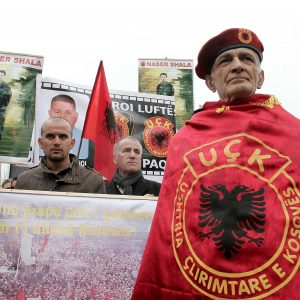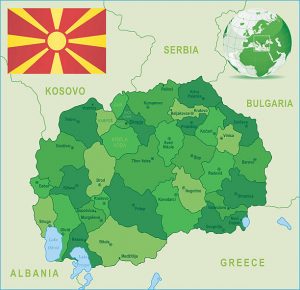What is really missing in the Western media reports on Macedonia’s referendum is a very and fundamental...
Macedonia
You're protesting a US-sponsored coup in your country? Well then you're a xenophobe [...]
Macedonia will probably become a member of the US-NATO anti-Russia military alliance, along with Ukraine, and the...
The role of the United States in the breakup of the Socialist Federal Republic of Yugoslavia is...
These coming days, the final result of the inter-state negotiations between the Former Yugoslav Republic of Macedonia...
The Republic of Macedonia and Greece reached a tentative deal to change the former’s constitutional name to...
A time of Macedonization of Macedonia by the creation of Macedonian regional feelings, which after the WWII...
he present-day Macedonians are having a century and a half identity disputes with their neighbors, especially with...
Ethnic Macedonians have all the arguments and facts to be afraid of looming war in Macedonia and...
Macedonia’s resistance to the unipolar Color Revolution and Unconventional War being unleashed against it is thus going...
The name “Macedonia” today belongs to two independent states: Greece and the Former Yugoslav Republic of Macedonia...
That a Serb Question in Yugoslavia was really acute problem became clear on April 24th, 1987 [...]
Does Washington hire culture-war mercenaries to go into countries like Saudi Arabia and Qatar to spread the...
A new 1991 year started with a fear of the escalation of the political conflicts into a...
Our name and identity have been misappropriated, yet the US and their favourite foreign policy pupil, Greece,...
Finally, the armed KLA rebellion in May 2015 against the state of Macedonia was used as a...
Interview with Professor Sean Gervasi, Institute of International and Economic Problems, Belgrade, Yugoslavia. Recorded on February 24th,...
Even more significantly for the assimilation of Paionia into the Greek world are the dedications of statues...
The “Macedonian Question” is today actual for several reasons of whom two are of the fundamental importance:...
US-sponsored Islamic Fighters in the Balkans: Washington was behind the 2001 terrorist attacks in Macedonia [...]
Yugoslavia was a multinational country with different national and ethnic groups coexisting together and two dominant nations...
North Macedonia’s accession into NATO marks the completion of one of the key goals of the country...
Greece, North Macedonia and Albania, defined exactly what was meant by “Macedonia” and “Macedonian.” For Greece, according...
The term “Macedonia” has always been used for a wider geographical area, approximately 51 percent of which...
Maybe it is the best agreement ever signed…Maybe by applying it, Greece and the Former Yugoslav Republic...
The future looks very grim for Macedonia as the newly installed pro-Western coup “government” wastes no time...
Diverting attention from the Ban Treaty and the Nobel Committee’s abolitionist Peace Prize, the United States has...
Although the idea of a Greater Albania may seem like an exaggerated conspiracy, to the Serbian people...
When in 2008 Kosovo declares independence, nearly a decade after the Western military intervention, few commentators call...
Markul argued that real Tito
lost the middle finger and index finger of the left hand. He...
As a condition for the “Westerners” giving the go-ahead for a new date to be set, the...



